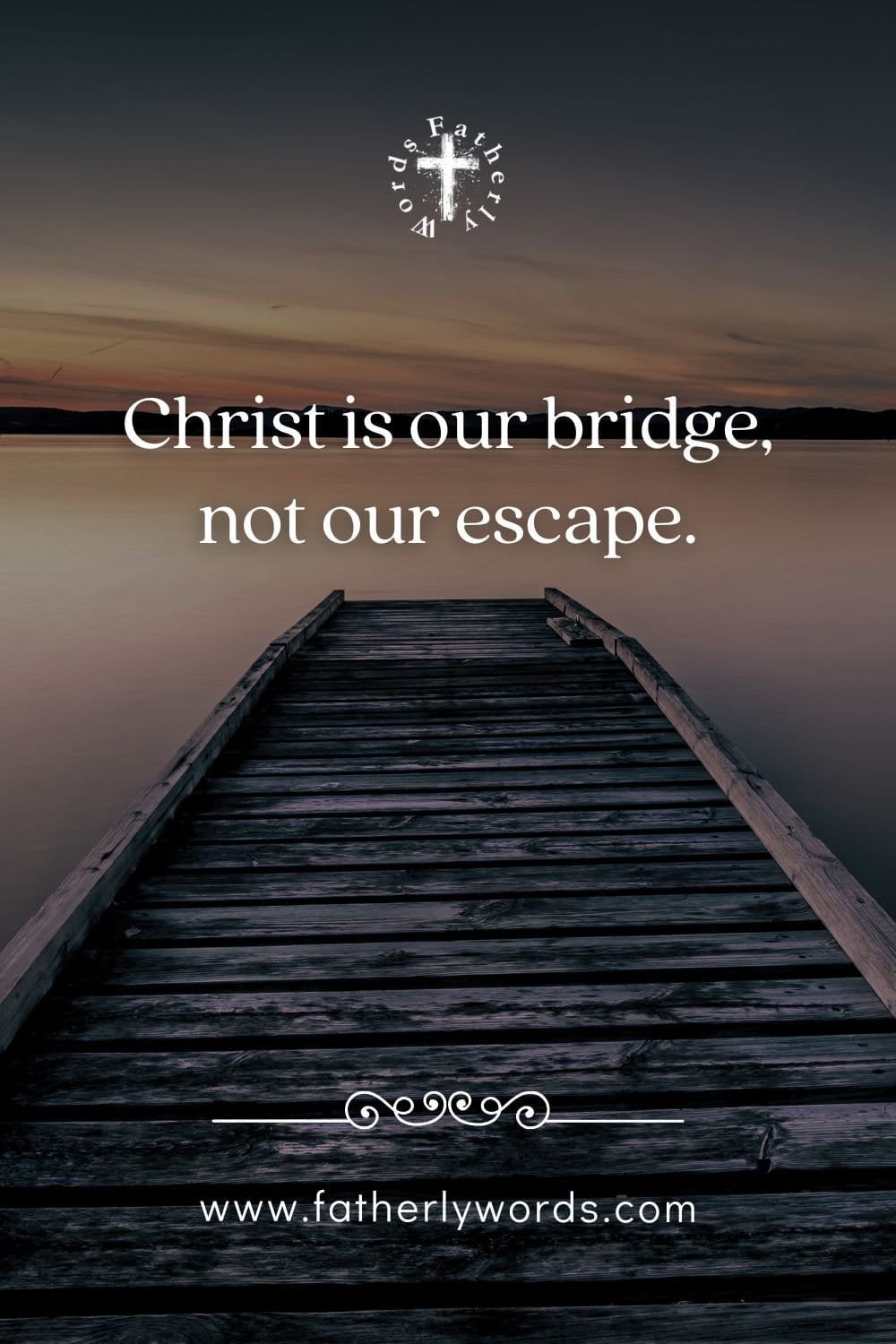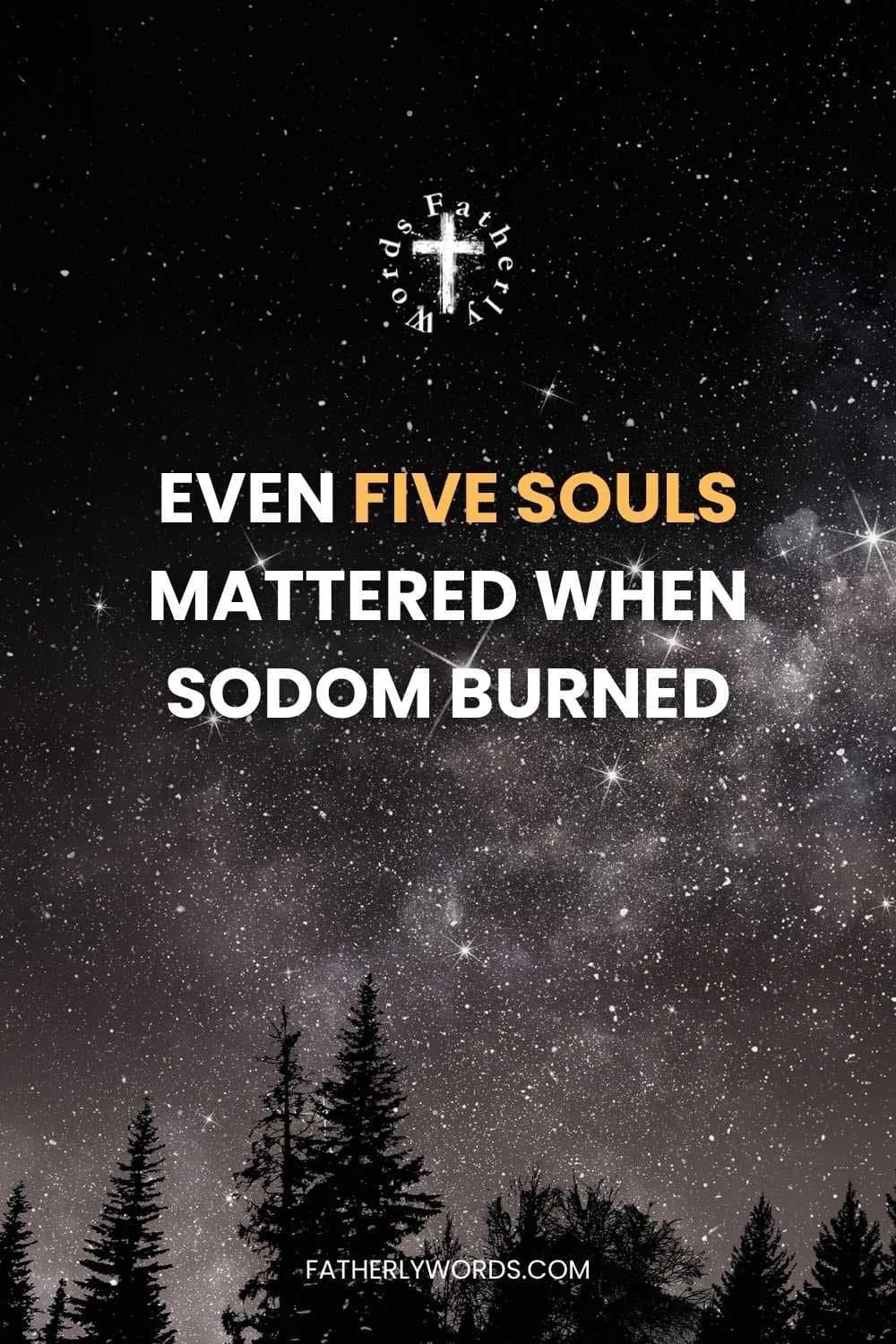The story of Sodom and Gomorrah is one of the most powerful and disturbing accounts in the Holy Scriptures. For many, it raises questions about God’s justice, human sin, and the place of mercy in divine judgment.
In Orthodox Christianity, this story is not viewed with fear alone, but with deep reverence and spiritual sobriety.
It is not merely about divine wrath, but about the consequences of unrepented sin, the cry of the innocent, and the enduring call to repentance.
The Cry of the Oppressed Reached Heaven
In the book of Genesis, we read that God reveals His intention to Abraham before judging the cities:
“The cry of Sodom and Gomorrah is great, and their sin is very grievous.”
Genesis 18:20
The Fathers of the Church interpret this “cry” not only as the stench of wickedness but as the voice of victims who suffered in silence. The sin of Sodom was not just private immorality. It was violence, injustice, cruelty, and unrepented rebellion against God and man.
Saint John Chrysostom writes that the sins of Sodom were not hidden but celebrated. Public shamelessness becomes a societal disease.
It corrupts not only individuals but entire generations.
The Lord did not act out of impulse but responded to a persistent and deep corruption that had reached its full measure.

God Always Warns Before Judgment
Orthodox Christianity teaches that God never destroys without warning. He sends messengers, gives time, and waits with long-suffering.
In the case of Sodom, Abraham himself intercedes and negotiates with God, asking if He would spare the city for fifty righteous men, then forty-five, then down to ten.
“If I find ten righteous men in the city, I will not destroy it.”
Genesis 18:32
This dialogue shows the mercy and patience of God. He is not eager to destroy but willing to forgive.
Yet even ten righteous could not be found. Only five people left the cities: Lot, his wife, and his three daughters. Even in a city full of sin, God saved the pure. He always protects those who remain faithful.
The story of Sodom reminds us that divine judgment is not about numbers, but about the absence of repentance.
Saint Basil the Great teaches that God’s justice is never separate from His mercy. Even His punishments are meant for correction and purification, not for destruction alone. But when a society no longer listens, the only cure is removal.
The Sins of Sodom Were Many
Often people reduce the sins of Sodom to one issue, but the Holy Scriptures and the Fathers are much broader. The Prophet Ezekiel clearly names multiple sins:
“Behold, this was the iniquity of thy sister Sodom: pride, fullness of bread, and abundance of idleness… neither did she strengthen the hand of the poor and needy.”
Ezekiel 16:49
Sodom was destroyed not only because of sexual immorality, but because of arrogance, luxurious laziness, oppression of the weak, and total moral collapse.
In Orthodox Christianity, sin is never isolated. One sin feeds another. Unrepented, they form a culture of spiritual death.
Saint Paisios of Mount Athos once said that when a society begins to justify its passions and turn sin into law, it is close to collapse.
The sins of Sodom are not about the past alone. They are warnings for every generation.

Lot Lived Among Them But Did Not Imitate Them
Lot, Abraham’s nephew, lived in Sodom. Yet he remained righteous, and God did not forget him. Saint Peter speaks of Lot’s suffering:
“Righteous Lot, vexed with the filthy conversation of the wicked… in seeing and hearing, vexed his righteous soul from day to day.”
2 Peter 2:7–8
Orthodox Christianity does not teach separation from the world, but living in the world without becoming part of its corruption.
Lot’s life shows that one can live among evil without participating in it. But it is also a warning: if you remain too long near fire, eventually it will consume you.
The angels came and warned Lot to flee. His hesitation almost cost him everything. His wife looked back and was turned into a pillar of salt.
“But his wife looked back from behind him, and she became a pillar of salt.”
Genesis 19:26
The Fathers teach that Lot’s wife did not simply glance out of sorrow, but turned her heart back to Sodom. She clung to the past and could not let go.
Her salt image becomes a lasting symbol in Christianity: when the heart refuses to detach from sin, it becomes frozen, hardened, and lifeless.
The Fire from Heaven Was Not a Natural Fire
Genesis says that the Lord rained fire and brimstone upon Sodom and Gomorrah.
“Then the Lord rained upon Sodom and upon Gomorrah brimstone and fire from the Lord out of heaven.”
Genesis 19:24
This was not an ordinary fire. The Fathers say it was a divine fire, not only to destroy but to purify.
In Orthodox Christianity, fire has two meanings. It destroys what is corrupt, but it also refines what is precious. This same fire, when seen spiritually, will appear at the end of the world as the fire of judgment.
Saint Ephraim the Syrian compares this fire with the fire that descended at Pentecost. To the pure, fire becomes light. To the impure, it becomes torment.
What Happened After the Destruction?
The cities were completely wiped out. Their location is now beneath the Dead Sea, according to tradition. But what happened next is also revealing.
Lot and his daughters went into the mountains. There, a tragic sin occurred: Lot’s daughters, believing they were the last people on earth, caused their father to become drunk and bore sons by him.
This shocking story is not glorified in Orthodoxy. It is shown as a warning: sin begets confusion.
Even survivors of destruction may still fall into deception if they rely only on themselves. The children born from this union became the Moabites and Ammonites, two nations often hostile to Israel.
Orthodox Christianity teaches that avoiding destruction is not the same as salvation. We must not only escape sin but enter into a life of grace, healing, and holiness.
Christ Refers to Sodom as a Warning
In the Gospels, Christ mentions Sodom multiple times. He does not speak only of fire, but of accountability. He says that for some cities that reject the Gospel, it will be worse than Sodom:
“If the mighty works which were done in you had been done in Sodom, it would have remained until this day.”
Matthew 11:23
And again:
“But I say unto you, That it shall be more tolerable for the land of Sodom in the day of judgment, than for you.”
Matthew 11:24
This teaches us that the true danger is not just gross sin, but rejecting the light of Christ.
In Orthodoxy, greater knowledge brings greater responsibility. Sodom never saw Christ, but we have. If we continue in sin after knowing the Gospel, our judgment is heavier.
Saint Nikolai Velimirovich once said, “The Lord has visited us with more than angels. He Himself has come. Woe to us if we live worse than Sodom.”
Lessons for Modern Orthodox Christians
The story of Sodom and Gomorrah is not locked in the past. It is a mirror for the present.
Orthodoxy teaches that the fall of every society begins in the heart. When we exalt pride, justify sin, ignore the weak, and silence the prophets, we walk the road of Sodom.
The Prophet Isaiah says:
“Woe unto them that call evil good, and good evil.”
Isaiah 5:20
Today, in many places, what once was shameful is now praised. Orthodox Christianity stands firm in every age, not because it hates sinners, but because it loves truth and calls all to repentance.
Saint John of Kronstadt said, “Repentance is the renewal of baptism, a second cleansing of the soul by tears.”
Our world may not see fire from the sky, but it suffers the inner fire of confusion, fear, and division. Only through repentance, prayer, and holiness can we turn back.
What Can Orthodox Families Learn from Lot?
Lot made the choice to live near Sodom because it looked prosperous. But that choice exposed his family to dangers. His wife looked back. His daughters acted in ignorance.
Orthodox Christian parents today must learn from Lot. We cannot always change the world around us, but we can protect our families through prayer, spiritual vigilance, and holy living.
The world may be full of Sodom-like values, but the Church remains the safe mountain of God.
Psalm 33 (LXX 34:15) reminds us:
“The eyes of the Lord are upon the righteous, and His ears are open unto their supplication.”
Our hope is not in the survival of cities but in the salvation of souls.
God Does Not Desire the Death of the Wicked
One of the clearest teachings of Orthodoxy is that God is not a cruel judge. His desire is not destruction but repentance.
“As I live, saith the Lord, I have no pleasure in the death of the wicked; but that the wicked turn from his way and live.”
Ezekiel 33:11
The story of Sodom ends in fire, but the message of Christianity ends in resurrection.
Today, the same God who judged Sodom offers salvation to all through Christ. His call is the same as always: repent, return, and live.
A Simple Explanation for Children
A long time ago, there were two cities where people forgot about God and did many bad things. They hurt each other and didn’t say sorry.
God waited and sent angels to help. But when no one wanted to change, the cities were destroyed so the bad things would stop.
One good man named Lot listened and was saved. We learn from this story that God loves us and wants us to be kind and live good lives. If we do what’s right, He always protects us.
Dive Deeper: